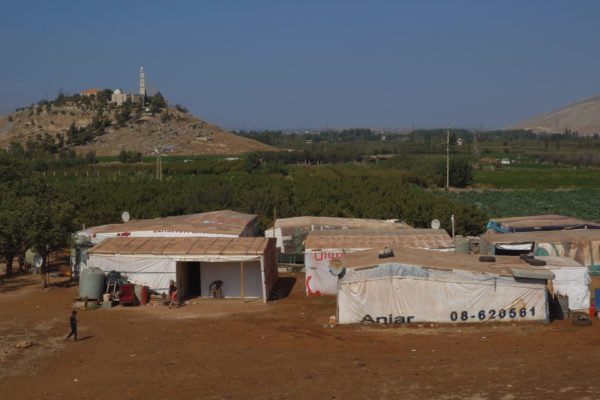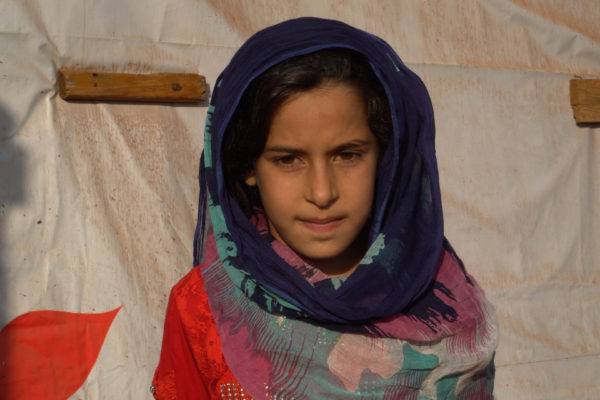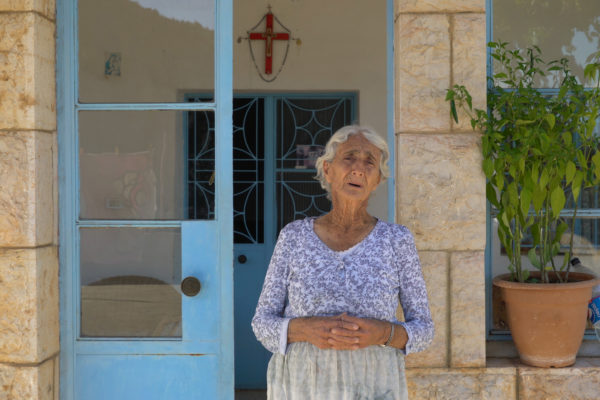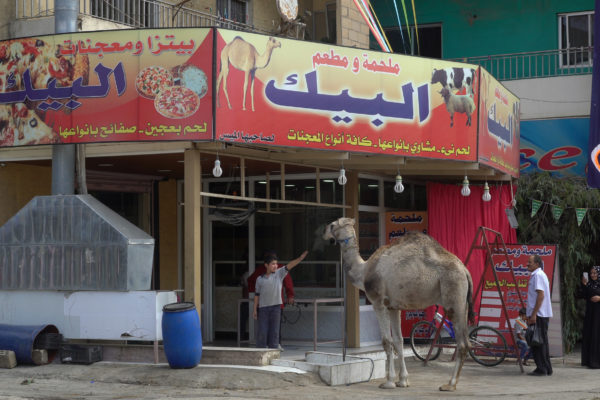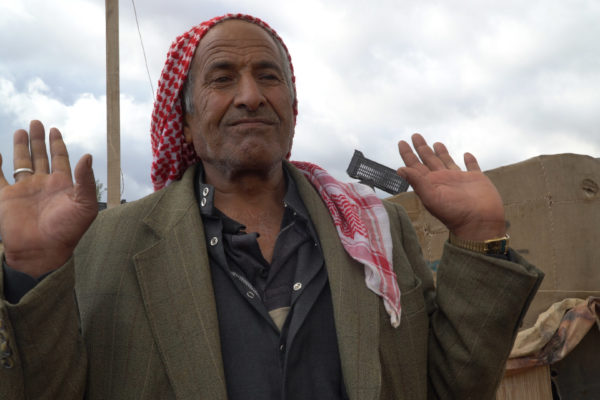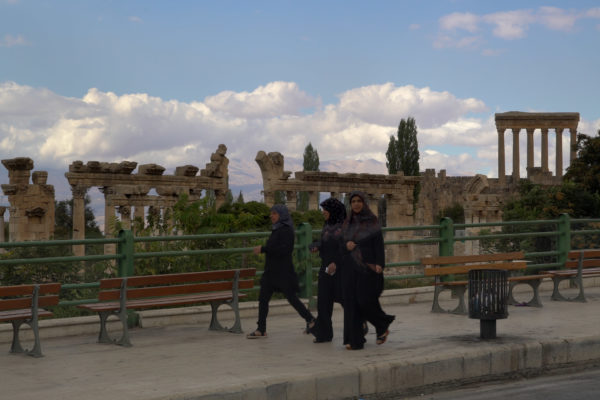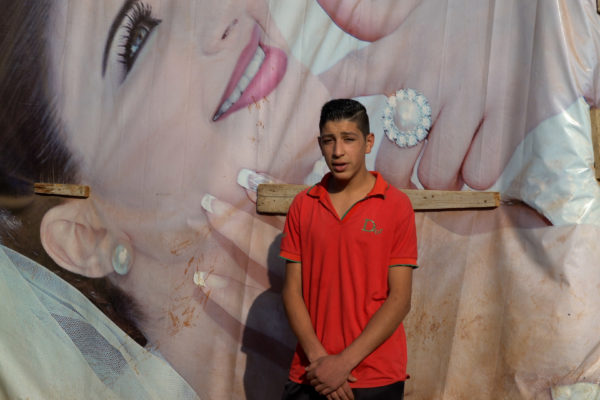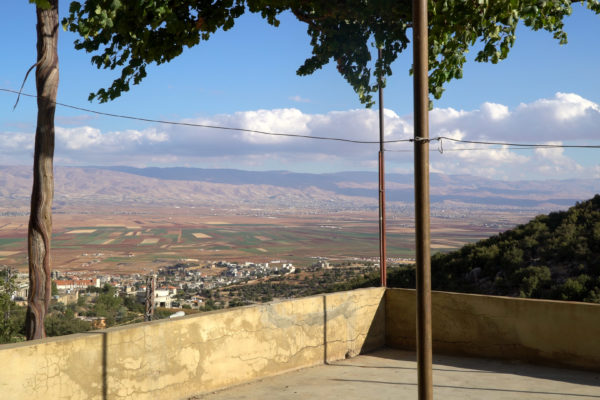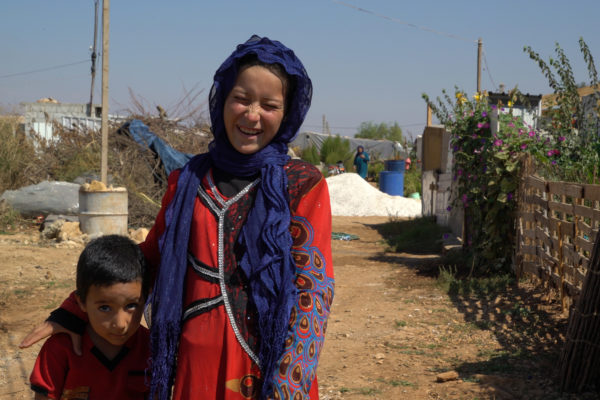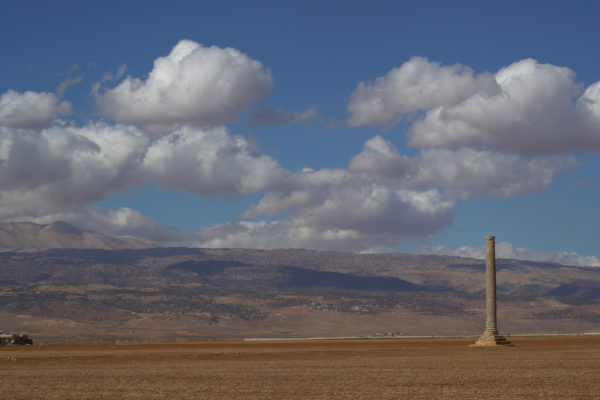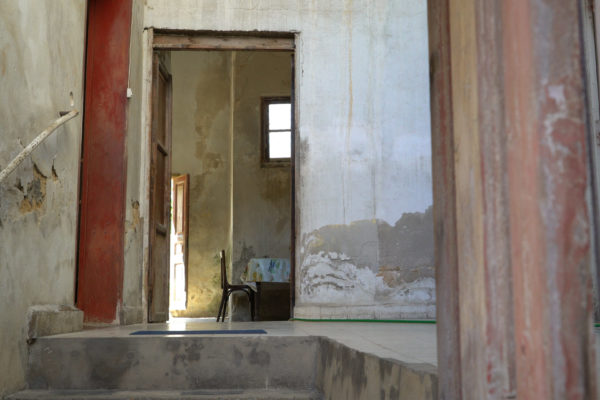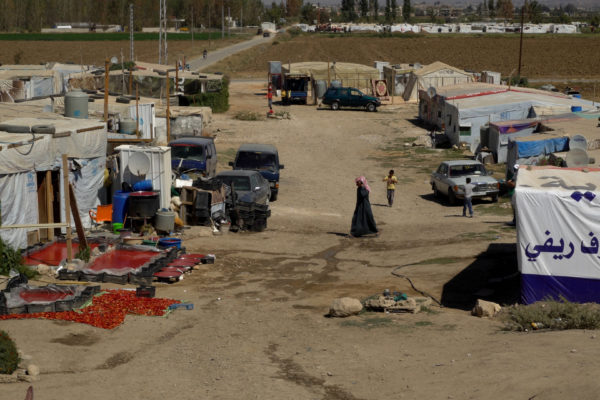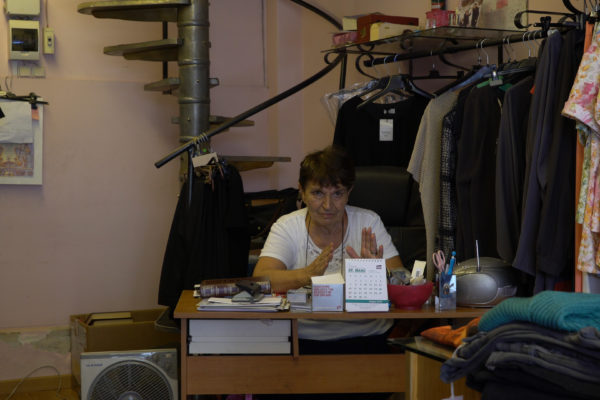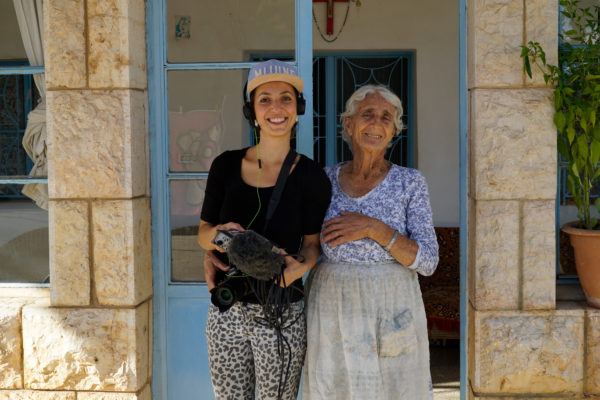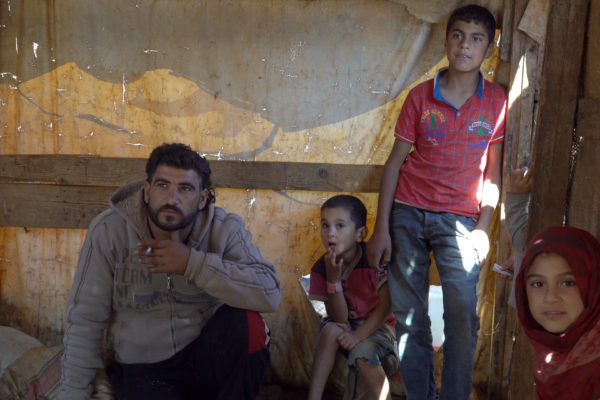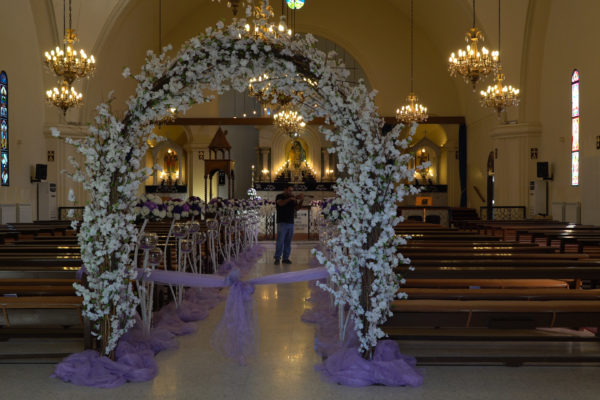“It’s too hard to live in Lebanon. Everywhere is warmth and heat. Syria is my homeland, where my beloved resides”. So goes the improvised song of Ammar, describing his discontent exiled from Syria, living in a Lebanese refugee camp, near Anjar in the Bekaa Valley, near the Syrian border. Like Ammar, millions are waiting for the end of the brutal war, living in tents in makeshift camps. Metropolitan Beirut, is just about two hours away by car. Before the Lebanese Civil War, Beirut was considered a jewel of a city, called the Paris of the East, or Switzerland of the Orient. Captured on camera are Syrian refugees and Lebanese, singing and talking about their experiences, their daily lives, their desires and their dreams, brought together in the same country–Lebanon. Full of devotion, they sing about love, country and religion. By interweaving poetry, interviews, and songs in such a manner, we have been able to show the hardships people face in these places shaken by years-long crises, yet also the strength and dignity they have retained in spite of their circumstances.
Synopsis
„Im Libanon kann man nicht leben, überall diese Wärme und Hitze. Syrien ist die Heimat, der Wohnsitz der Beliebten.“ Improvisierend sang der Flüchtling Ammar in einem Flüchtlingscamp in der Nähe von Anjar im Bekaatal an der Grenze zu Syrien und beschrieb damit seinen Unmut, nicht in seine Heimat zurückkehren zu können. Wie Ammar warten hier Millionen auf das Ende der kriegerischen Auseinandersetzungen in behelfsmäßigen Zeltlagern. Die Metropole Beirut liegt gerade einmal zwei Autostunden davon entfernt. Den ehemaligen Glanz der Region und seiner Hauptstadt Beirut lassen die vor dem Bürgerkrieg gebräuchlichen Bezeichnungen „Paris des Ostens“ für Beirut oder „Schweiz des Orients“ für den Libanon noch erahnen. Vor der Kamera sprechen und singen Libanesen und geflüchtete Syrer von ihren Erlebnissen, ihrem Alltag, von Wünschen und Träumen, Geschichten ihres jeweiligen Landes nun zusammengeführt auf libanesischem Boden. Sie singen voller Hingabe über die Liebe, ihre Nation und Religionen in ihren zumeist improvisierten Liedern. Zu den überwältigenden Landschaften des Libanongebirges und des paradiesisch anmutenden Bekaatales interpretiert die deutsch libanesische Jazzsängerin Marie Séférian ihre Filmmusik mit ihrer Formation. Es entstand ein Film, der als eine künstlerische Bestandsaufnahme die aktuellen Zustände des krisengeschüttelten Landes dokumentiert und durch die besondere Art der Interviews und ihren Gesangsvortrag den entwurzelten Menschen ein Stück Würde zurückgegeben möchte.
„Au Liban on ne peut pas vivre. La chaleur et la canicule sont partout. La Syrie est la patrie, la terre des bien-aimés“ Ces vers improvisés chantés reflètent le désarroi d‘Ammar, cet exilé syrien rencontré dans un camps de réfugiés aux environs d‘Anjar dans la plaine de la Bekaa, zone frontalière de la Syrie. A l‘instar d‘Ammar, des millions de réfugiés, regroupés dans des camps provisoires, attendent la fin de la guerre en Syrie, ici, sur cette plaine. Beyrouth, la capitale du Liban, ne s‘en trouve qu‘à deux heures de voiture. „Le Paris du Moyen-Orient“ et „La Suisse du Moyen-Orient“: ces dénominations de Beyrouth et du Liban, usuelles avant l‘éclatement de la guerre civile, nous laissent encore deviner leur splendeur d‘autrefois. Devant nos caméras, des Libanais et exilés syriens nous racontent ou nous chantent leurs expériences et ressentis, leur quotidien, leurs désirs et leurs rêves, l‘histoire de leurs pays réciproques. Tous, réunis sur le sol libanais. Ils nous chantent avec dévouement l‘amour, leur patrie, leurs religions. La musique de ce documentaire composée par Marie Séférian, chanteuse de jazz franco-libanaise, vient souligner les paysages éblouissants des montagnes libanaises et de l‘envoûtante plaine de la Bekaa. Ce documentaire dresse avec une touche artistique un état des lieux actuel
يه ايروس .ةرارحلاو ءفدلا وه ناكم لك يف .نانبل يف شيعلا ةياغلل بعصلا نم„ فصت يتلا ، ةلجترملا رامع ةينغأ بهذت اذكه .„ يبيبح شيعي ثيح ، ينطو ايروس نم يفنملا هطخس برقلاب ، عاقبلا لهس يف رجنع نم برقلاب ، نيينانبللا نيئجالل ميخم يف .ةيروسلا دودحلا نم يف مايخ يف نوشيعيو ، ةيشحولا برحلا ةياهن نورظتني نييالملا ، رامع لثم برحلا لبق .ةرايسلاب نيتعاس يلاوح توريب ةنيدم دعبت .ةتقؤم تاميخم سيراب„ ىمست ةنيدمل ةرهوج ربتعُت توريب تناك ، ةينانبللا ةيلهألا نويروس نوئجال مه اريماكلا ىلع نايقتلملا .“قرشلا ارسيوس„ وأ “قرشلا مهتابغرو ةيمويلا مهتايحو مهبراجت نع نوثدحتيو نونغي ، نوينانبلو بحلا نع نونغي ، ءالولاب ةئيلم .نانبل – دلبلا سفن يف نيعمتجم ، مهمالحأو .نيدلاو دالبلاو ىقيسوملا ةباتكب نايرفيس يرام ةينانبللا / ةيناملألا زاجلا ةينغم تماق يتأي اذه لك نم .نانبل يف ةعئارلا نايدولاو لالتلل ةلماشلا رظانملا ةقفارمل دالبلا هذه اهيف دجت يتلا ةيئانثتسالا ةلاحلا ينف لكشب لقني مليف اهتقزم يتلا
Director’s Statement
People in Lebanon are used to contrasts. Today the four million Lebanese are sheltering (estimated) two million refugees. Many flee directly over the Syrian border to find shelter. The film seeks out Beirut residents and Syrian refugees to discuss their current situation. Contrary to expectations, many of them have no interest in going to Europe or Germany. The Syrians are too accustomed to their lives as shepherds or vegetable farmers back home to be able to imagine a new life with their many children in a totally strange climate and country. The wish for a speedy return to a peaceful Syria is the overwhelming sentiment expressed by Syrian refugees in several camps, when asked by the UNHCR in Anjar and the surrounding area. Many refugees would not give any interviews. They are afraid that their words would be interpreted as politically incorrect by the authorities or the Syrian government, and they fear reprisals. Yet the Syrians sing about their yearning for their homeland, love and religion. And the Lebanese in turn sing of their patriotic feelings, which survived intact through their civil war and of which they are especially proud. Through these mostly improvised words and melodies, the dignity and strength of these two peoples are poetically conveyed and the viewer gains understanding and insight into this pressing, current situation.
Im Libanon ist man an Gegensätze und Instabilität gewöhnt. Heute leben im Libanon nach Schätzungen zwei Millionen Flüchtlinge, darunter vor allem Palestinenser und Syrer. Sie sind oft direkt aus dem Nachbarstaat Syrien über die Grenze gekommen und haben hier Zuflucht gefunden. Der Film befragt Bewohner Beiruts zur Situation und lässt eine Vielzahl der vor dem Krieg geflohenen Syrer zu Wort kommen. Entgegen allen Erwartungen des Filmteams wollen viele von ihnen gar nicht nach Europa oder Deutschland. Zu sehr sind die Syrer an das Leben als Schafhirten oder Gemüsebauern in ihrer Heimat gewöhnt, als dass sie sich vorstellen könnten, mit ihren zahlreichen Kindern eine neue Existenz in der Fremde aufzubauen. Der Wunsch nach einer baldigen Rückkehr in ein befriedetes Syrien war der Grundtenor der von uns Befragten in mehreren Flüchtlingscamps des UNHCR in Anjar und Umgebung. Viele der Flüchtlinge lehnten Interviews ab. Sie hatten große Angst vor Repressalien seitens der Behörden oder der syrischen Regierung, die ihre Beiträge möglicherweise als politisch unkorrekt einstufen könnten. Doch dann sangen einige Syrer von ihrer Sehnsucht nach Heimat, Liebe und Religion und die Libanesen von ihrem Nationalgefühl, welches durch Bürgerkrieg und Durchhaltevermögen entstanden ist und auf das sie heute besonders stolz sind. Durch diese improvisierten Texte und deren spontanen Liedvortrag zumeist in der Form traditioneller Klagegesänge überträgt sich auf poetische Weise die Stärke dieser Menschen auf den Zuschauer und erzeugt Achtung, Verständnis und Einsicht in die aktuelle Situation.
Au Liban, les gens sont habitués aux contrastes et à l‘instabilité. Vivre aujourd‘ hui au Liban selon les estimations deux millions de réfugiés, principalement des Palestiniens et des Syriens. Ils franchissaient souvent la frontière directement de la Syrie voisine et trouvaient refuge ici. Le film interviewe des habitants de Beyrouth sur la situation et laisse parler une variété de Syriens qui ont fui la guerre. Contrairement à toutes les attentes de l‘équipe de tournage, nombre d‘entre elles ne veulent même pas aller en Europe ou en Allemagne. Trop de Syriens sont habitués à la vie comme des bergers ou des cultivateurs de légumes dans leur pays d‘origine, comme ils pourraient l‘imaginer, avec leurs nombreux enfants pour se construire une nouvelle vie à l‘étranger. Le désir d‘un retour rapide dans une Syrie pacifique était le principe fondamental de nos interrogés dans plusieurs camps de réfugiés du HCR à Anjar et dans ses environs. Beaucoup de réfugiés ont refusé les entretiens. Ils avaient très peur des représailles des autorités ou du gouvernement syrien, qui pourraient classer leurs contributions comme politiquement incorrectes. Mais ensuite, certains Syriens ont chanté leur désir de retrouver leur foyer, leur amour et leur religion et les Libanais leur sentiment national, créé par la guerre civile et l‘endurance et dont ils sont particulièrement fiers aujourd‘hui. Ces paroles improvisées et leur récitation spontanée de lieder, principalement sous forme de lamentations traditionnelles, transmettent poétiquement la force de ces personnes au spectateur et génèrent respect, compréhension et perspicacité dans la situation actuelle.
رفي ريثك .ئجال ينويلم (ردقي) نويوؤي ينانبل نييالم ةعبرأ كانه ، مويلا توريب ناكس نع مليفلا ثحبي .ىوأم داجيإل ةيروسلا دودحلا ربع ةرشابم نإف ، تاعقوتلا سكع ىلع .يلاحلا مهعضو ةشقانمل نييروسلا نيئجاللاو داتعا دقل .ايناملأ وأ ابوروأ ىلإ باهذلا يف ةحلصم مهيدل سيل مهنم ريثكلا نم اونكمتي ىتح نطولا يف تاورضخلل ةاعر وأ عارك مهتايح ىلع نويروسلا ةبغرلا .امًامت بيرغ دلبو خانم يف نيريثك مهلافطأ عم ةديدج ةايح ليخت اهنع برعأ يتلا ةبلاغلا رعاشملا يه ةملاسم ايروس ىلإ ةعيرسلا ةدوعلا يف ممألل ةيماسلا ةيضوفملا تبلط امدنع ، تاميخم ةدع يف نويروسلا نوئجاللا نم ريثكلا .اهب ةطيحملا ةقطنملاو رجنع يف نيئجاللا نوؤشل ةدحتملا اهنأ ىلع مهتاملك رسفت نأ نوشخي مهنإ .تالباقم يأ اومدقي نل نيئجاللا نوشخي مهنأو ، ةيروسلا ةموكحلا وأ تاطلسلا لبق نم ايسايس ةحيحص ريغ .ماقتنالا نوينانبللاو .مهنيدو مهبحو مهنطو ىلإ مهقوت نع نونغي نييروسلا نكل ةيلهألا مهبرح لالخ اهلاح ىلع تيقب يتلا ، ةينطولا مهرعاشم نونغي هرودب يف ةلجترملا ناحلألاو تاملكلا هذه لالخ نم .صاخ لكشب اهب نورخفي يتلاو امًهف دهاشملا بستكيو ايًرعش نيبعشلا نيذه ةوقو ةمارك لقن متي ، بلاغلا .ةيلاحلا ةحلملا ةلاحلا هذهل اقًيمع امًهفو
Filmmakers Biographies
Matthias Leupold
Matthias Leupold was born in East Berlin in 1959. Since the 1980s he has been creating a parallel world through his staged photography. Scenes from this world have been exhibited in over 50 exhibitions in Europe, Asia and the USA and are published in several books, as well as archived in international collections. Leupold is a Professor of photography at University of Applied Sciences Europe, Berlin. His first documentary: Lighter than Orange–The Legacy of Dioxin in Vietnam, 2015, was selected from several festivals in Europe, USA and Asia and awarded with Grand Prize Documentary Feature Award of Socially Relevant Film Festival New York and Best Feature Documentary Los Angeles CineFest, 42 broadcasts from Deutsche Welle.
Marie Séférian
Marie Séférian is the daughter of a chamber musician and a French chanson singer. With three years she began to play the violin. After ten years of violin lessons she decided to take piano and singing lessons. She studied Jazz Voice at the University of Arts Berlin, Berlin and in Luzern, Switzerland. Marie released several albums with her own compositions and toured in: Libanon, Chile, Netherlands, India, Switzerland, Ireland and Germany. Her life motto is: No matter where you are, music is everywhere. You carry it with you always.
Film Music
For this documentary the German/Lebanese jazz singer Marie Séférian has composed poems written by her grandfather Antoine Safar. He wrote these poems during the civil war in 1977 after he had fled from Lebanon to Paris. For her longtime quartet Séférian has invited an oud player from Berlin who is half-Lebanese and half-Palestinian. It was very important for her that all musicians experience the country before recording her music. After a concert tour in Lebanon the quartet recorded the music for the documentary in Berlin.
Marie Séférian hat für diesen Film Gedichte von Ihrem Großvater Antoine Safar vertont. Diese hat er 1977 geschrieben, nachdem er aus dem Libanon mit seiner Familie nach Paris geflüchtet war. Zu ihrer langjährigen Quartett-Besetzung hat Séférian einen Oud-Spieler aus Berlin eingeladen, der Halb-Libanese und Halb-Palästinenser ist. Für Marie war es sehr wichtig, dass alle Musiker, die mit ihr zusammen die Musik aufnehmen, das Land vorher erlebt haben. So spielte das Quartett nach einer Konzert-Tour durch den Libanon die Musik im Frühjahr 2017 in Berlin ein.
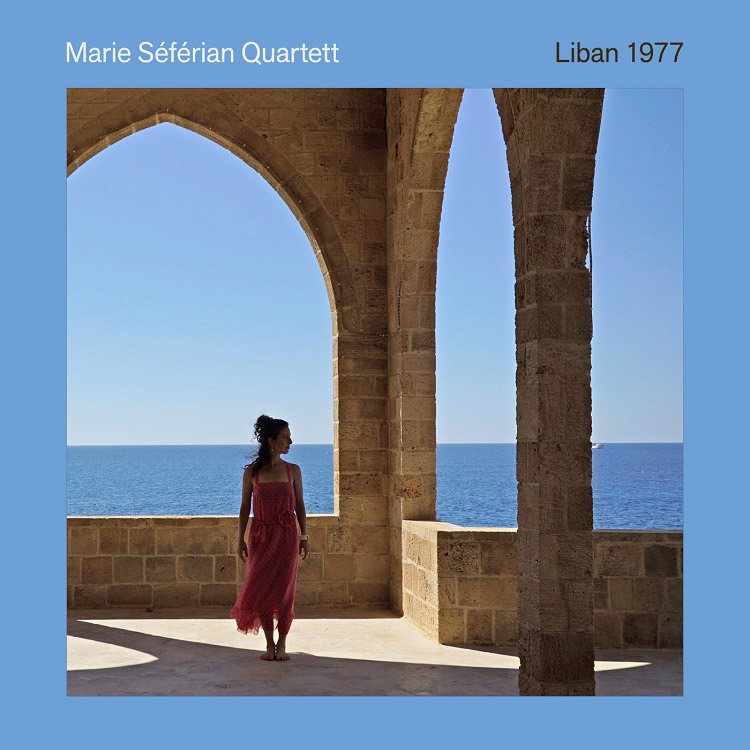
Marie Séférian Quartett
Marie Séférian · Vocals
Niko Meinhold & Carsten Daerr · Piano
Tim Kleinsorge · Bass
Javier Reyes · Drums
Nadim Sarrouh · Oud
Film Stills
Credits
In Order of Appearence
Ammar
Sylvie Safar
Mardiros Palazian
Mira Habchi
Raymond
Mamon
Wedding Singer
Sou Ha Salem
Seymed
Ali
M.
Mathilda Habchi †
Dani Habchi
Fatemh
Mohamed
Losa
Hadar
Hesham
Sabah
Sahar Ali
Film Crew
Directors
Music and Vocals
Translations
Consulting Beirut
Driver
Support in Beirut
Speaker
Motion Design
Animation
Maps
Color Grading
Sounddesign
Editing
Production
Cinematography · Editor
Matthias Leupold · Marie Séférian
Marie Séférian
Mardiros Palazian · Saema Saleh
Souhila Kara-allel · Masha Traber
Walaa Ismail
Lotti Und Faouzi Adaimi · Abdallah Annan
Dani Habchi
Elina Achkar
Jean-claude Séférian
Marcel Schobel
Christian Mahler
Jesse Simon · Dorothea Franz · Salomé Wagner
Laif Kardelke
Khalil Chahine · Phil Freeborn
Lilian Leupold
Leupold Film Production Berlin
Matthias Leupold
